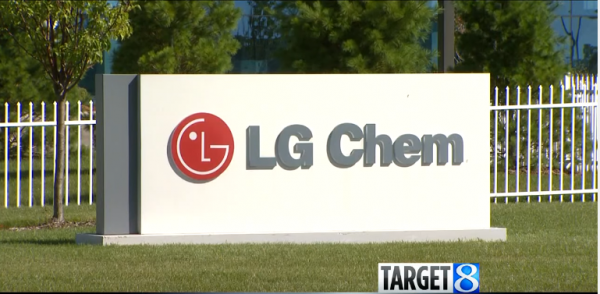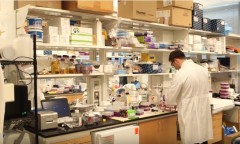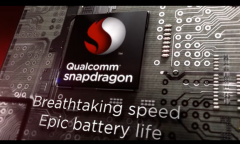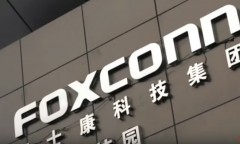By Prei Dy, | March 20, 2017

LG Chem extends battery production arm to China. (YouTube)
LG Chem will be extending its energy storage system (ESS) production lines to Nanjing, China, with the construction for the expansion starting to roll out.
The largest South Korean chemical company did not disclose the investment size and the number of production lines it intend to add. But it is planning to export the systems it produces in the US and Europe without selling them in China, Business Korea reported.
Like Us on Facebook
The move to expand its ESS production line to the mainland is because of the company's growing global demand. Last year, LG Chem's production capacity soared from 293 MWh to 591 MWh. LG Chem also recently won several contracts including an ESS battery supply deal with ABB, a solar power ESS supply with IBC Solar, and a home ESS supply with SMA.
The battery cell manufacturing firm will reportedly be constructing two new plants to support its electric vehicle battery production efforts, Clean Technica reported. Although it is not yet known how much production capacity it targets with the two new additional factories, Push EVs noted that "anything less than increasing from 50,000 to 100,000 EV batteries per year would be aiming low, since we're taking about supplying batteries to the biggest electric car market in the world, China."
The demand for such systems is also likely to increase in South Korea, especially after the country's Ministry of Trade, Industry and Energy made ESS installation mandatory on several public institutions. The local market for ESS installation alone is estimated to reach 244 MWh annually until the end of the decade. The ESS global lithium ion battery ESS market also jumped to 2,872 MWh from 1,647 MWh in 2016, according to market research company SNE Research.
For two consecutive years, LG Chem placed first in the market, accounting a share of 21 percent. Trailing behind is Samsung SDI with 19 percent and a capacity of 544 MWh. Tesla also plans to speed up its production capacity to almost fivefold within a year to 186 MWh.
-
Use of Coronavirus Pandemic Drones Raises Privacy Concerns: Drones Spread Fear, Local Officials Say

-
Coronavirus Hampers The Delivery Of Lockheed Martin F-35 Stealth Fighters For 2020

-
Instagram Speeds Up Plans to Add Account Memorialization Feature Due to COVID-19 Deaths

-
NASA: Perseverance Plans to Bring 'Mars Rock' to Earth in 2031

-
600 Dead And 3,000 In The Hospital as Iranians Believed Drinking High-Concentrations of Alcohol Can Cure The Coronavirus

-
600 Dead And 3,000 In The Hospital as Iranians Believed Drinking High-Concentrations of Alcohol Can Cure The Coronavirus

-
COVID-19: Doctors, Nurses Use Virtual Reality to Learn New Skills in Treating Coronavirus Patients
















